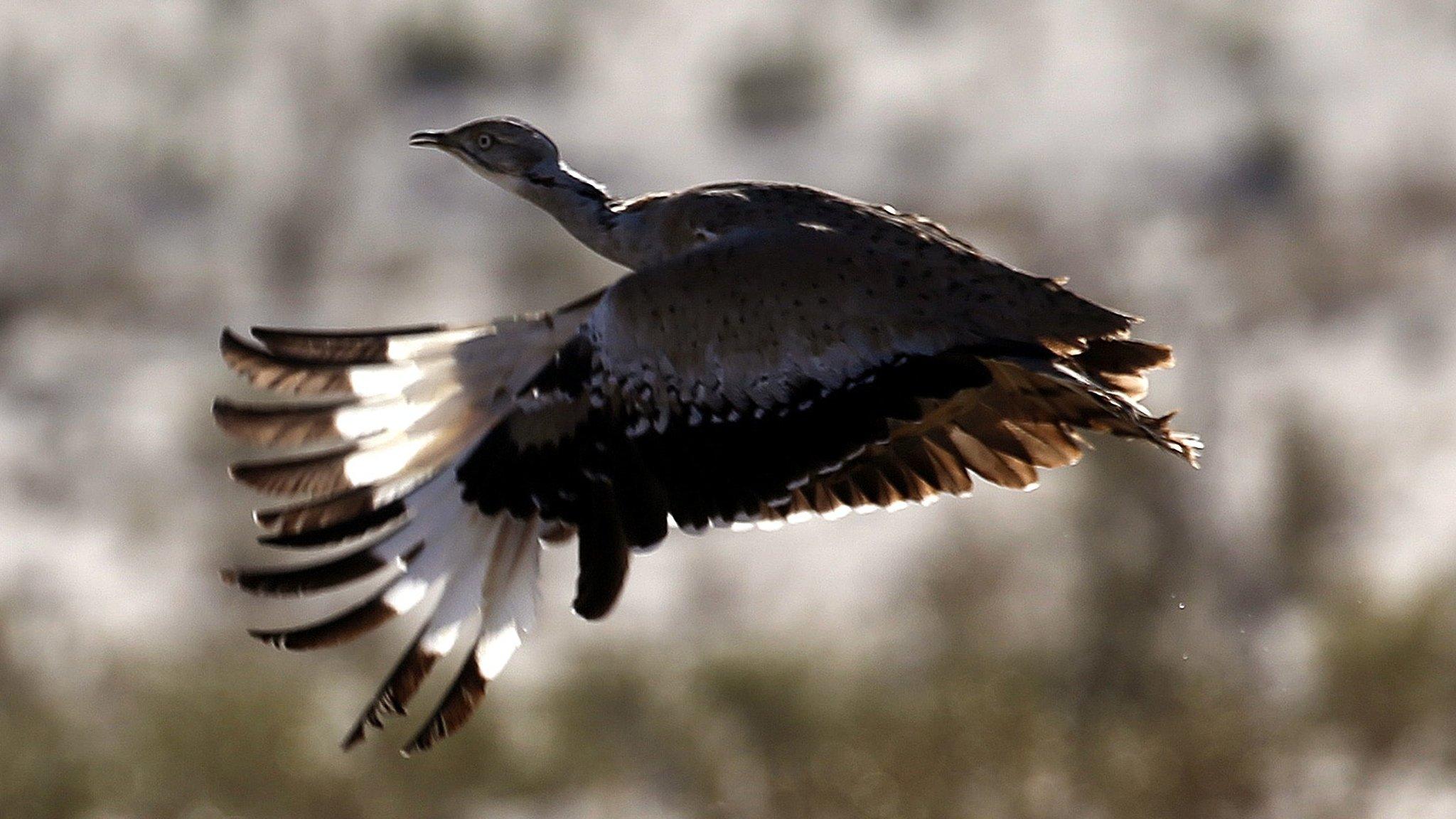Houbara bustards: Pakistan hunting ban sparks political row
- Published
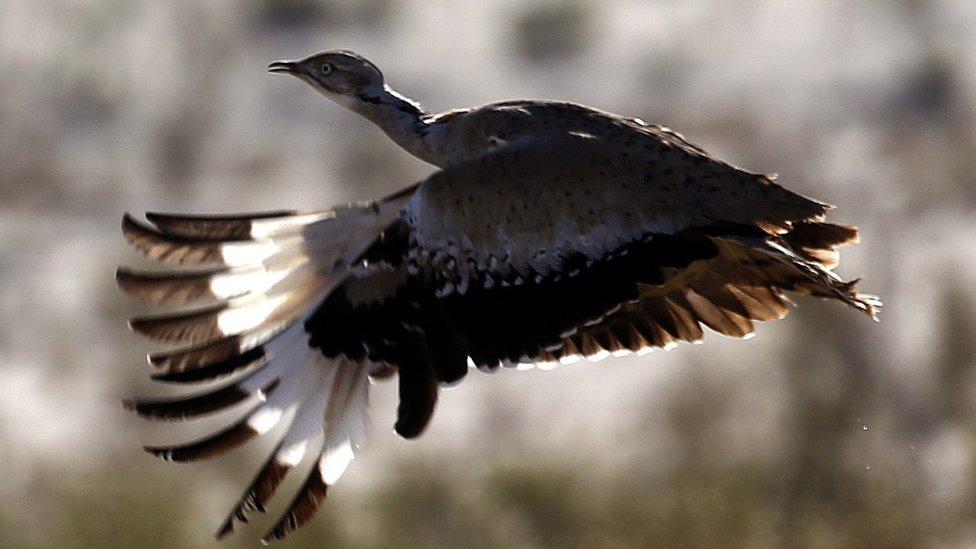
Hunting on the birds wintering grounds is the main reason for their dwindling population
Pakistan issues permits for controlled hunting of houbara bustards, a rare bird species, to wealthy Arabs from the Middle East but one province has now imposed a ban. Why?
What are houbara bustards?
Houbara bustards are a rare breed of migratory birds the size of a chicken. They migrate in their thousands every winter from Central Asia to the arid planes of southern Pakistan.
Once a thriving species, the houbara bustard population has drastically fallen in recent years and the International Union for the Conservation of Nature (IUCN) has placed it on its "red list" of threatened species.
Its current global population is estimated at between 50,000 to 100,000 birds.
The hunting of houbara bustards is banned in most countries, including Pakistan. But every year Pakistan issues special hunting permits to dignitaries from the Middle East as part of what many call "soft diplomacy".
Each permit allows the holder to hunt 100 birds in a 10-day hunting spree, but the limits are often exceeded, locals and conservationists say.
The Arabs cherish houbara hunting both as a sport and because its meat is considered an aphrodisiac.
IUCN believes hunting of houbara bustards on their wintering grounds is the main reason for their dwindling population.
Why is Imran Khan helping to protect them?
Imran Khan, a former Pakistan cricket captain, heads the main opposition Pakistan Tehrik-e-Insaf (PTI) party, which is in power in the north-western province of Khyber Pakhtunkhwa (KP).
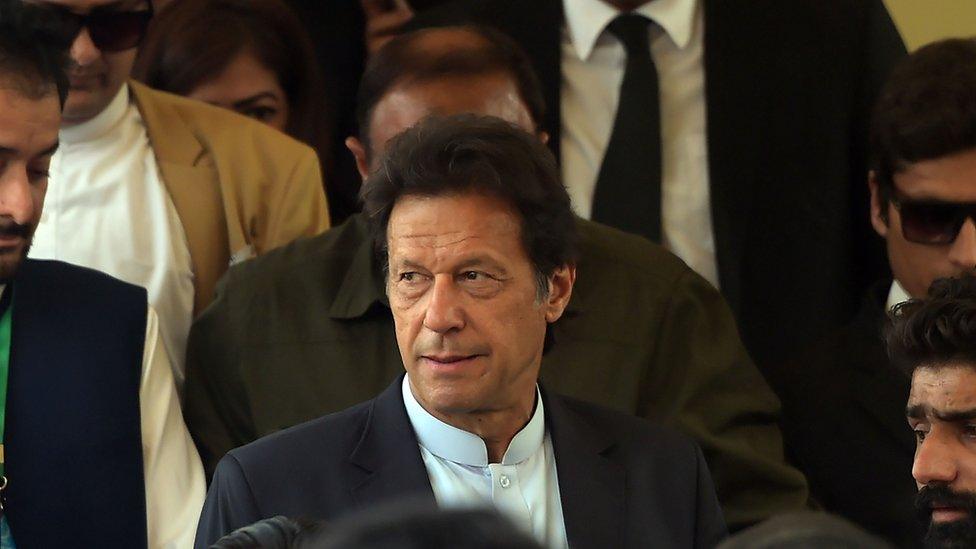
Mr Khan tweeted that the birds need to be protected
On Sunday, the KP government announced a blanket ban on the hunting of houbara bustards in its territory.
Adviser to the Chief Minister on Environment and Forests, Ishtiaq Ormar, issued a notification stating that "no one, local or foreigner, will be allowed to violate the law, as hunting of the internationally protected bird is not allowed under the law in the province."
The announcement came following reports that a group of Qatari princes had landed in Pakistan to hunt houbara bustards, including in the KP region.
Political row
Mr Khan has been conducting a campaign against the government of Prime Minister Nawaz Sharif since 2014.
He first led a massive four-month sit-in in Islamabad over allegations that the 2013 elections which brought Mr Sharif to power had been rigged. The government denies the allegations.
More recently, protests by his party led to a court case being brought against Mr Sharif's family over allegedly undeclared property in London.
The case was prompted by the well-documented Panama Papers leaks which were said to show Mr Sharif's children as owners of hitherto undeclared offshore companies.
Sharif supporters say the charges against them are politically motivated and the Sharif family said the Panama Papers "made no allegations of wrongdoing against" it.
The court proceedings brought by the PTI are focused on when the properties in question were acquired.
The KP government's ban on hunting came hours after Imran Khan in a tweet expressed his intention "to speak to the KP CM (chief minister) not to allow anyone to hunt Houbara Bustards in KP as it is a protected bird and hunting them is illegal".
This left little doubt in many commentators' minds that the KP ban had come not because of any official policy of the KP government, but as a result of Mr Khan's personal intervention, even though he holds no formal office in the provincial government.
Where does the Qatari prince come in?
Mr Khan's tweet, and the subsequent ban by KP, came in the wake of media reports last week that the federal government had allowed a Qatari prince, Shaikh Abdullah bin Ali al-Thani, to hunt houbara bustards in the Dera Ismail Khan region of KP province.
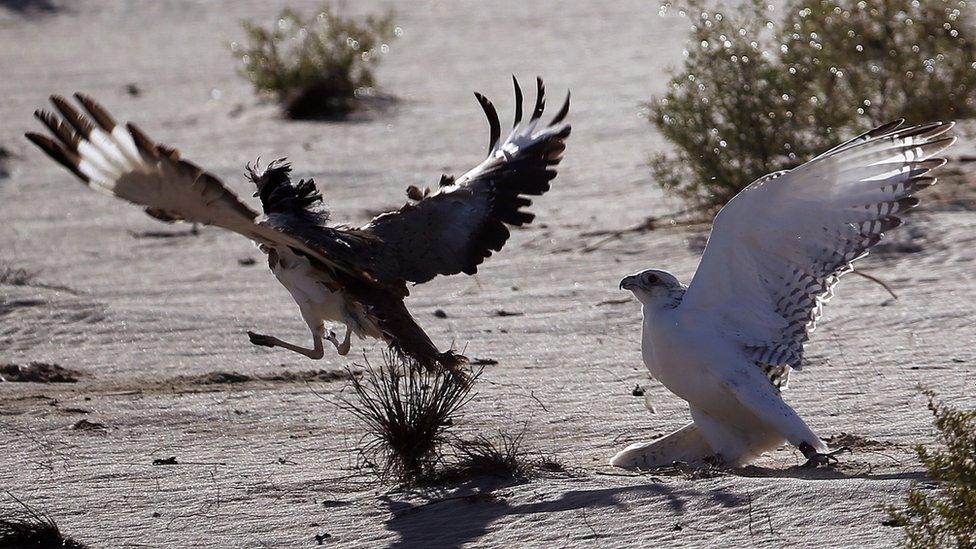
Houbara bustards (left) are also used in falconry competitions in the Middle East
Shaikh Abdullah, who last visited the Dera Ismail Khan area to hunt in 2012, is one of several members of Qatar's royal family who are annually issued permits to hunt houbara bustards in different parts of Pakistan.
They include former prime minister of Qatar, Shaikh Hammad bin Jassim bin Jabir al-Thani, who is normally allotted the Bhakkar-Khushab region, and the father, brother and several cousins of the Emir of Qatar.
The ban has led to comments that it will likely cause embarrassment to the federal government which considers houbara hunting permits for Arab shaikhs as an important part of its foreign policy.
How is Prime Minister Sharif involved?
Many say Imran Khan's move to ban hunting in KP has more to do with domestic politics than conservation of houbara bustards.
They point out that in November a letter issued by former Qatari prime minister Shaikh Hammad bin Jassim was produced in court by Nawaz Sharaf in support of his case.
The letter referred to business dealings between PM Sharif's late father, Mian Mohammad Sharif, and the Shaikh's father.
The subsequent sale of these business assets in the Gulf are said to have provided funds for the Mayfair apartments in London.
Following the production of the letter in court, some opposition circles have suggested the former Qatari PM is trying to help PM Sharif get away with "ill-gotten money", which is denied.
Many believe Imran Khan's decision to ban hunting was a knee-jerk reaction to the Qatari letter.
But others point out that the KP government may be following a sustained policy, given that last year it arrested and fined another Qatari prince in Dera Ismail Khan who was found hunting with falcons without a permit, external.
- Published11 February 2016
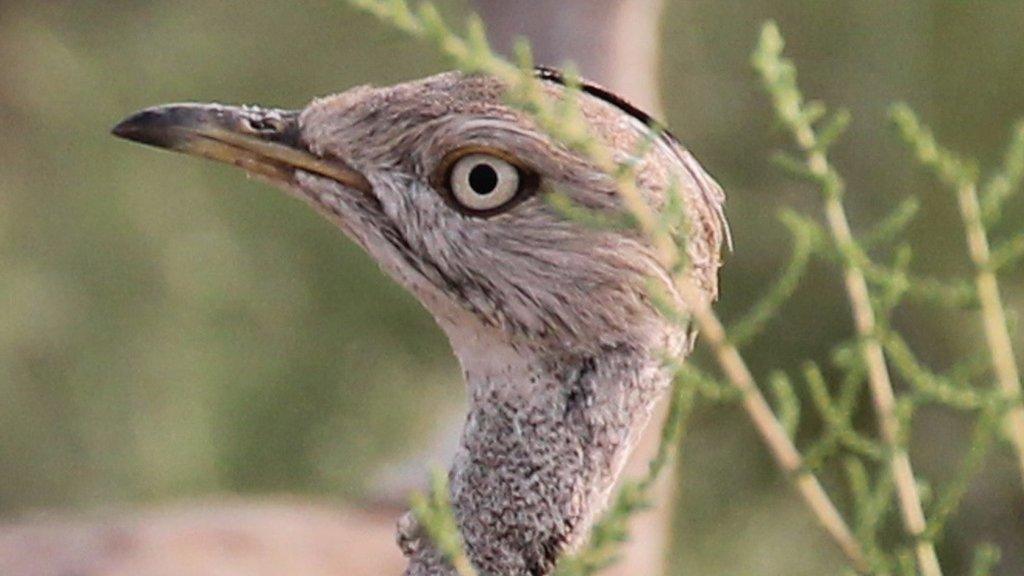
- Published9 September 2015
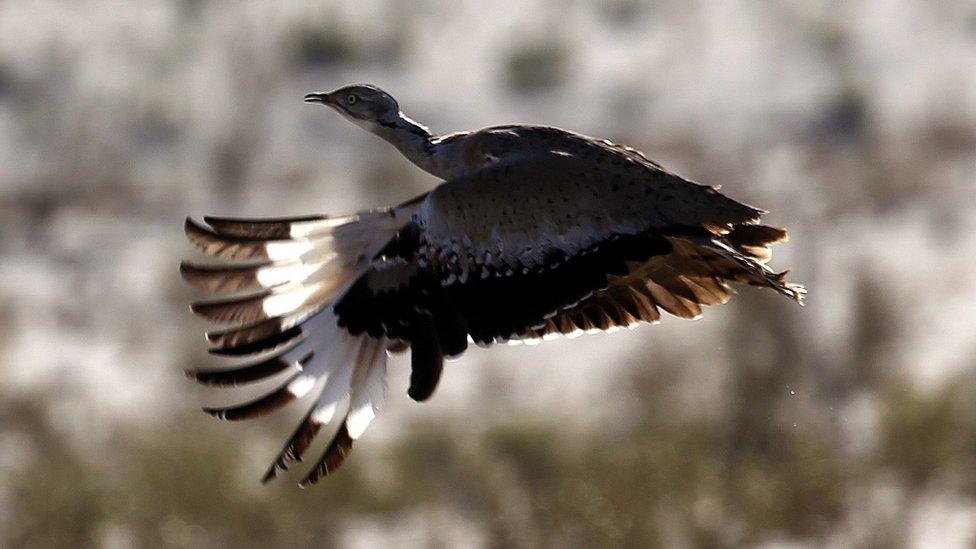
- Published22 January 2016
